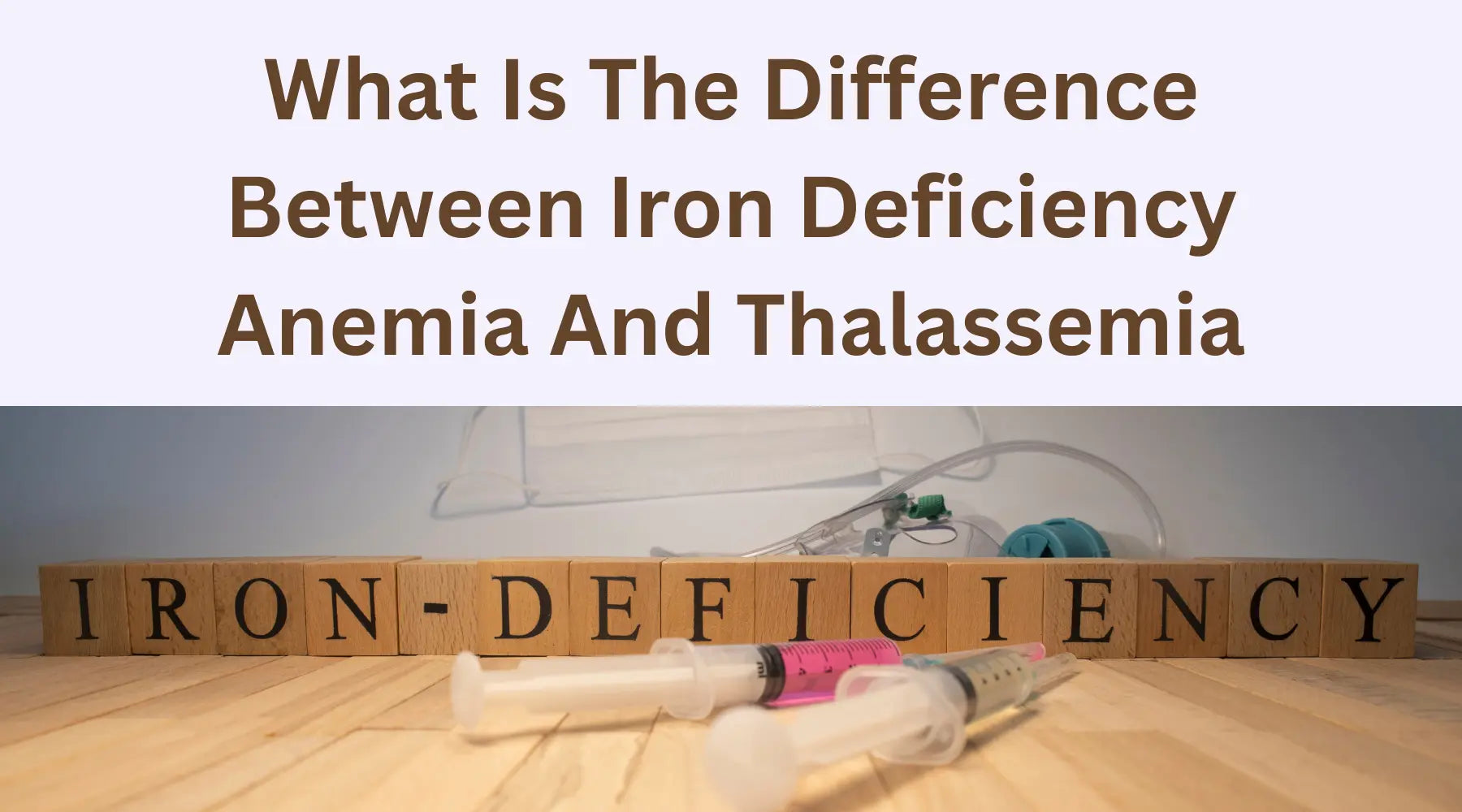 Iron Deficiency Anemia and Thalassemia are two blood illnesses that frequently cause people to wonder how they can affect their health. We'll look at the main distinctions between these two conditions in this blog article and talk about how Shilajit might be used to treat both.
Iron Deficiency Anemia and Thalassemia are two blood illnesses that frequently cause people to wonder how they can affect their health. We'll look at the main distinctions between these two conditions in this blog article and talk about how Shilajit might be used to treat both.
Deficiency in iron Understanding the Dissimilarities Between Anemia and Thalassemia
Anaemia from iron deficiency:
Cause: A lack of iron deficiency is the leading cause of human anaemia. This may happen due to insufficient dietary iron consumption, poor gut absorption of iron, blood loss from menstruation, an injury, or a digestive disorder.
Symptoms: Iron deficiency anaemia frequently manifests as weakness, exhaustion, pale complexion, brittle nails, and shortness of breath. It may also result in developmental and cognitive problems, particularly in young children.
Iron Deficiency Anemia is commonly diagnosed with a blood test that checks for low haemoglobin levels, hematocrit, and serum ferritin.
Thalassemia:
Cause: A genetic blood condition known as thalassemia is characterized by faulty haemoglobin production. It is brought on by receiving defective genes from one or both parents.
Anaemia, weariness, jaundice (yellowing of the skin and eyes), and bone deformities are among the symptoms of thalassemia, which range in severity.
A blood test to detect haemoglobin levels and specific genetic tests to find thalassemia mutations are used in the diagnosis.
Options for Treating Iron Deficiency Thalassemia and anemia
Deficiency in iron Supplements by dietary changes or iron supplements given by a healthcare professional is the usual anaemia treatment. Blood transfusions may be required in cases of severe anaemia.
Treatment for thalassemia is based on how severe the problem is. While some people with moderate forms may not need treatment, others may require blood transfusions, iron chelation therapy (to get rid of extra iron in the body), or, in more severe situations, a bone marrow transplant.
Investigating Shilajit's Treatment
The possible health advantages of shilajit, a naturally occurring resin-like compound in the Himalayan region, have been investigated. While there is still much to learn about Shilajit's involvement in blood conditions, including Iron Deficiency Anemia and Thalassemia, it has some qualities that may be important:
Shilajit has a small quantity of naturally occurring iron, which may help people with iron deficiency anaemia supplement their dietary iron consumption.
Shilajit has a lot of antioxidants, which can help shield red blood cells from oxidative damage and possibly help people with both illnesses.
Shilajit is thought to increase general vitality and energy levels, which might be helpful for people who are suffering from the exhaustion brought on by these diseases.
Conclusion
Thalassemia and iron deficiency anaemia are two discrete blood conditions with unique origins and modes of care. Thalassemia is a hereditary disorder affecting haemoglobin production, while Iron Deficiency Anemia is frequently connected to inadequate iron intake or absorption.
Both illnesses require both symptom management and treatment of the underlying cause. Shilajit may help treat various blood problems due to its possible advantages in boosting iron intake, delivering antioxidants, and increasing general vigour.
Shilajit should be used as a supplement, not as the only form of treatment, though. A personalized treatment plan suited to each patient's needs and circumstances should be created in close collaboration with medical professionals for those diagnosed with Thalassemia or Iron Deficiency Anemia.
In conclusion, a correct diagnosis and the right course of therapy depend on knowing the distinctions between Thalassemia and Iron Deficiency Anemia. Investigating complementary practices like Shilajit may improve a person's general well-being if they have these conditions.